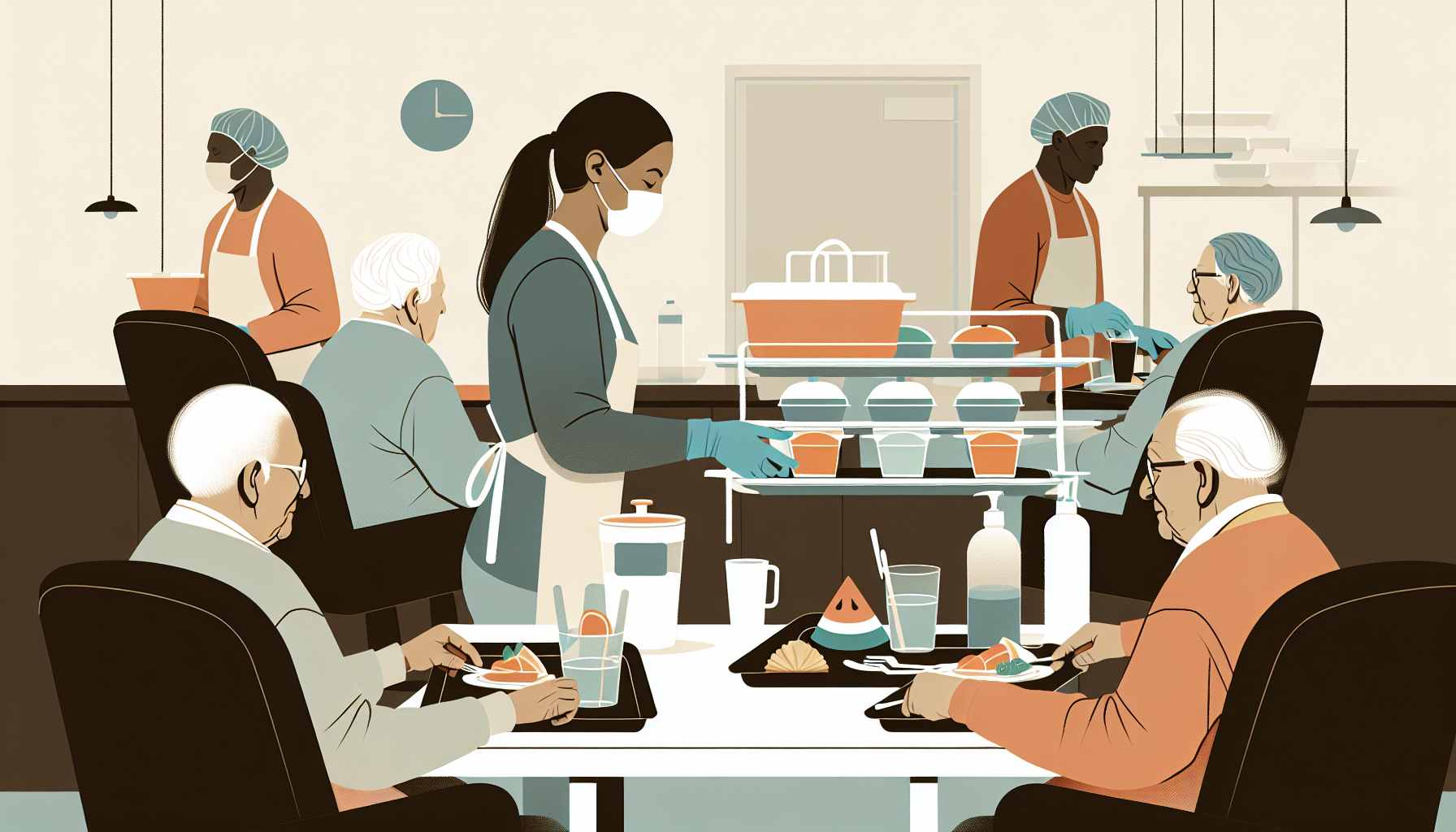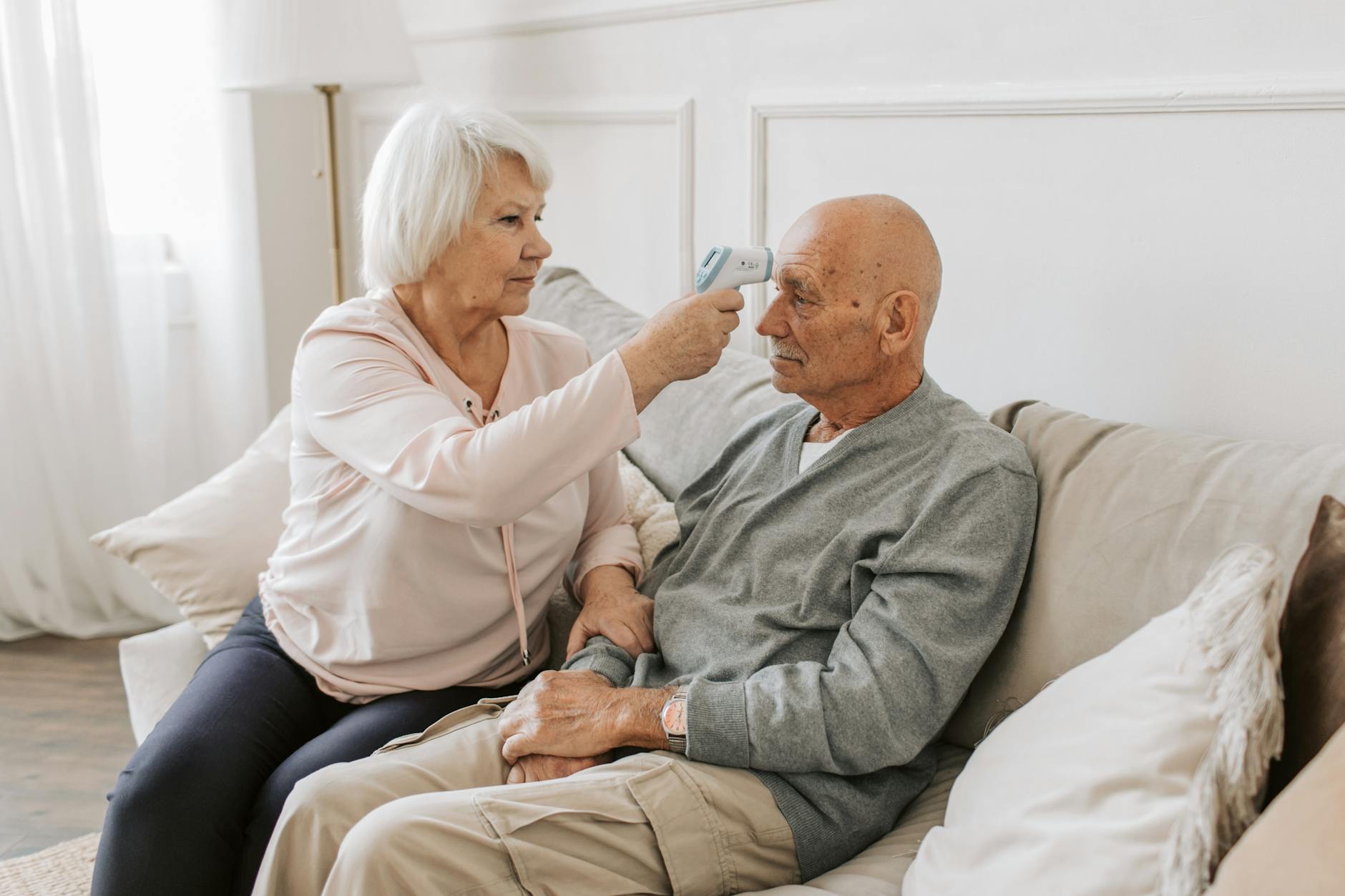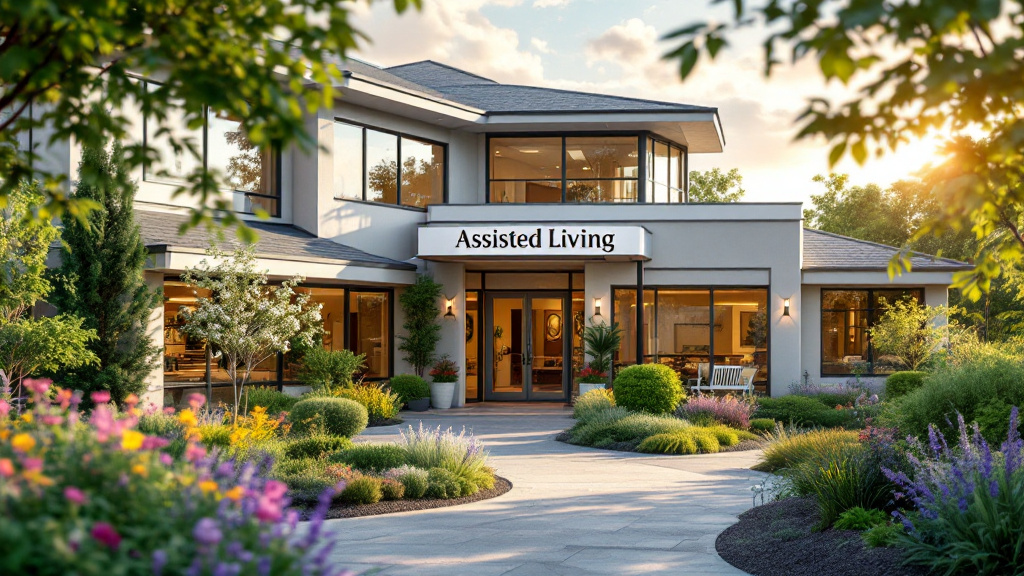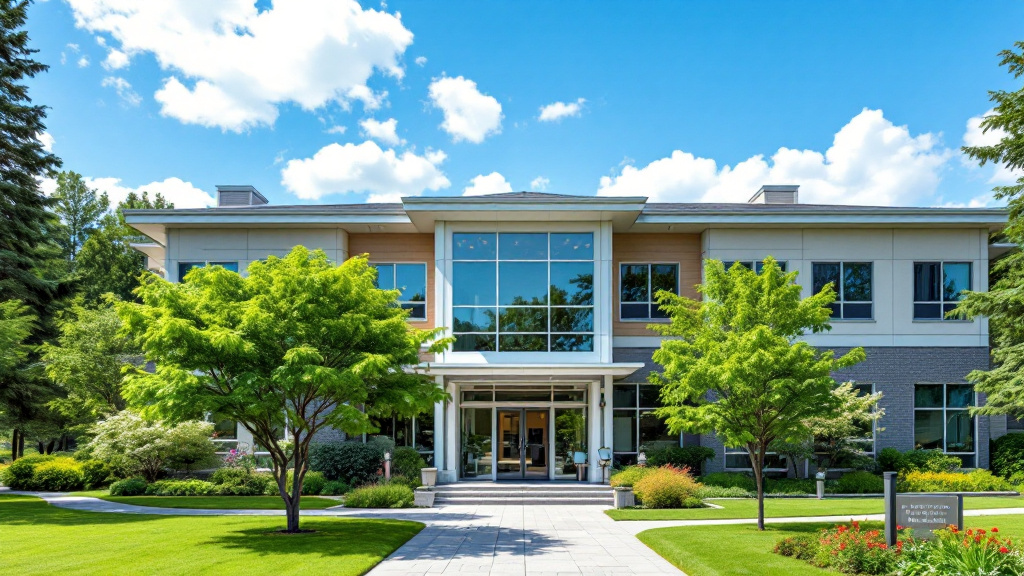Addressing Appetite Loss in Aging Adults

Understanding Appetite Loss in Aging Adults
Anorexia of Aging
Anorexia of aging is a term used to describe the common decline in appetite that occurs in many older adults. Approximately 1 in 3 seniors in Canada faces challenges in meeting their nutritional needs due to this phenomenon. It was first identified by researchers in the 1980s and can significantly impact the health and quality of life in aging populations. Factors such as physiological changes, psychological functioning, social environments, and medical conditions can influence appetite loss in seniors.
Studies estimate that between 15% and 30% of older individuals experience anorexia of aging, with higher rates reported among women, nursing home residents, and hospital patients [2].

Numerous physiological changes contribute to this condition, including decreased saliva production, diminished sense of taste and smell, and slower gastric emptying, which can lead to a decline in the joy of eating. Older adults may also experience constipation and dental issues, affecting their ability to consume food comfortably.
FactorDescriptionDecreased Saliva ProductionReduces the ability to enjoy food.Poor DentitionMakes chewing difficult and unappealing.Slow Gastric EmptyingCauses prolonged feelings of fullness.ConstipationMay lead to discomfort and reluctance to eat.
Impact of Long-term Poor Appetite
The long-term effects of decreased appetite can be detrimental. Reduced food intake may lead to nutritional deficiencies, impacting physical health and overall well-being. Those who struggle to maintain proper nutrition may experience significant weight loss, loss of muscle mass, weakened immune systems, and increased susceptibility to illnesses.
In addition to physical health implications, appetite loss can contribute to mental health challenges. Depression is common among older adults and is known to impair appetite, with reported rates ranging from 9% in community-dwelling older individuals to 27% in care home residents. Poor nutrition can further exacerbate depressive symptoms, creating a cycle that impacts quality of life.
Addressing appetite loss in aging adults requires awareness of these various factors and can benefit from ongoing support and intervention. For more information on strategies to improve appetite, explore our sections on dietary interventions for aging adults and enhancing appetite through lifestyle changes.
Factors Influencing Appetite in Seniors
Appetite loss in aging adults can stem from various influences, notably physiological, psychosocial, and medication-related factors. Understanding these factors is essential for effectively addressing appetite loss in aging adults.
Physiological Factors
Physiological changes play a crucial role in affecting appetite among seniors. As individuals age, the following issues may arise (CDHF, NCBI):
Additionally, specific physiological changes can include:
Physiological ChangeImpact on AppetiteDecreased saliva productionDifficulty in swallowing foodPoor dental healthChallenges in chewingSlow gastric emptyingFullness may inhibit further eatingIncreased thresholds for tasteLoss of flavor perception, impacting desire to eat
As aging continues, older adults may experience a decline in their senses, especially taste, which can contribute to appetite loss and nutrient deficiencies.
Psychosocial Factors
Psychosocial elements can substantially influence appetite. Common contributors include:
Table showcasing the impact of psychosocial factors on appetite:
Psychosocial FactorImpact on AppetiteDepressionReduced interest in foodSocial IsolationDecreased motivation to eatLarge Portion SizesOverwhelming feeling, discouraging food intake
Influence of Medications
Medications can greatly affect appetite in elderly individuals. Numerous commonly prescribed drugs are known to alter the sense of taste and smell or induce nausea, which can suppress appetite. Some categories that impact appetite include (CDHF, NCBI):
The table below summarizes the influence of medication on appetite:
Medication TypePotential Impact on AppetiteAntibioticsAlterations in taste and nauseaAntihypertensivesPossible loss of appetiteAntidepressantsChanges in feeding behaviors
Regular review of medications by healthcare professionals is crucial to manage the side effects associated with appetite suppression, ensuring that seniors maintain a balanced diet and overall nutrition. For more strategies on this topic, see our article on weight management programs in assisted living.
Risks Associated with Appetite Loss
Addressing appetite loss in aging adults is crucial due to the significant risks associated with this issue. As appetite diminishes, various health concerns can arise, affecting nutritional status, physical health, and overall quality of life.
Nutritional Deficiencies
A long-term poor appetite in older adults can lead to substantial nutritional deficiencies. This deficiency may manifest as unintentional weight loss, advancing from mild to severe malnutrition. The incidence of malnutrition in elderly populations varies widely, reported to be between 3% and 50%. In hospitalized older individuals, the rates can range from 12% to 50%, while in institutionalized seniors, the figures can be as high as 60%.
These deficiencies can result in a range of health issues, including:
Nutritional DeficiencyPotential Health ImpactsProteinMuscle weakness, decreased immunityVitamin DBone decline (osteoporosis, osteomalacia)CalciumIncreased risk of fracturesVitamin B12Cognitive impairment
Impact on Physical Health
The consequences of a diminished appetite extend beyond nutritional deficiencies and can significantly affect physical health. Aging adults may experience frailty, which introduces a higher risk of falls and injuries. Specifically, falls can lead to hip fractures and long-term mobility limitations. Other physical health issues that can arise include skin breakdown and pressure sores, resulting from prolonged bed rest due to weakened muscles.
The relationship between appetite loss and physical decline can further exacerbate existing health conditions, creating a vicious cycle that is challenging to break.
Implications on Quality of Life
Appetite loss not only affects physical health but also has profound implications for an individual's quality of life. Malnutrition can lead to a decline in physical and functional abilities, increasing vulnerability and leading to a poor quality of life. This deterioration can contribute to increased morbidity and mortality among seniors [3].
Psychological factors can also play a role, as decreased energy levels and physical health may lead to social withdrawal and isolation, further diminishing overall well-being. Addressing appetite loss is essential to improve both health outcomes and the quality of life for aging adults. Various dietary options and support systems are available, which can enhance well-being in this population. For more information, consider exploring our articles on farm-to-table dining for elderly residents and supplements for boosting senior health.
Identifying and Addressing Appetite Loss
Understanding the factors contributing to appetite loss in aging adults is the first step toward effective intervention. Identifying these causes and engaging in strategies to improve dietary intake is essential for maintaining health and quality of life.
Common Causes and Contributors
Loss of appetite in older adults can be attributed to a variety of factors:
Strategies for Improvement
Implementing strategies to reverse appetite loss can be beneficial:
Cause/StrategyDescriptionPhysiological ChangesDecreased metabolic rate and energy levels.Health ConditionsChronic illnesses and medication side effects.DehydrationUp to 40% of seniors under-hydrated, impacting appetite.Engaging MealsOffering both comforting and new meal choices.Meal Frequency5-6 small meals a day to meet nutritional needs.ExerciseIncreases metabolism and appetite.
Importance of Healthcare Professional Involvement
Engaging healthcare professionals is crucial for addressing appetite loss in aging adults:
By recognizing causes of appetite loss and engaging in supportive strategies, as well as involving healthcare professionals, seniors can improve their nutritional intake and overall well-being. For more resources, explore our articles on weight management programs in assisted living and snack options for elderly residents.
Dietary Interventions for Aging Adults
Implementing specific dietary interventions can help address appetite loss in aging adults. By focusing on nutrient-dense foods, meal frequency and variety, and proper hydration, caregivers can support better nutritional habits in seniors.
Nutrient-Dense Foods
Choosing the right foods is critical in promoting healthy eating among older adults. Nutrient-dense options provide essential vitamins and minerals that support overall health. Foods to consider include:
Food ItemNutrientsAvocadosHealthy fats, potassiumBananasFiber, potassiumSalmonOmega-3 fatty acids, proteinFruits & VeggiesVitamins C & A, antioxidantsTurkeyProtein, B vitaminsHigh-Calorie SoupsNutrients and hydrationYogurt ParfaitsProbiotics, calcium
Incorporating these foods into meals can stimulate appetite and increase nutritional intake, as suggested by Ninkatec. Offering healthier versions of favorites or introducing new recipes can also enhance interest in meals.
Meal Frequency and Variety
Increasing meal frequency and ensuring a diverse diet can significantly impact appetite and nutrition in seniors. Smaller, more frequent meals can make it easier for older adults to consume adequate amounts of food. This approach also helps maintain energy levels throughout the day.
It's beneficial to incorporate a variety of foods into every meal, as this can prevent monotony and encourage eating. Engaging residents in menu design can promote satisfaction with food choices and even enhance social interaction during meals, making dining a more enjoyable experience. For more insights on involving residents, check out our article on gathering resident input for menu design.
Hydration and Appetite
Hydration plays a crucial role in maintaining appetite, with dehydration being a significant factor in appetite loss among older adults. Reports indicate that up to 40% of seniors may be chronically dehydrated due to various reasons, including medication effects and reduced thirst signals [4].
To counteract this, it's essential to encourage ample fluid intake throughout the day. Offering a variety of beverages, including water, herbal teas, and nourishing broths, can aid in hydration and, in return, support appetite stability.
By implementing these dietary interventions, caregivers and family members can effectively address appetite loss in aging adults, contributing positively to their overall health and well-being. Consider exploring additional resources about supplements for boosting senior health if needed.
Enhancing Appetite Through Lifestyle Changes
Addressing appetite loss in aging adults involves more than just dietary changes. Lifestyle alterations can significantly enhance appetite and overall well-being.
Exercise and Metabolism
Engaging in regular physical activity can lead to a temporary increase in the body's metabolic rate. This boost can help elderly individuals eat more by stimulating their metabolism and appetite. Consulting with a physician is essential to identify safe and suitable exercises for older adults. Table 1 below offers some exercise options suitable for seniors.
Type of ExerciseDescriptionSuggested FrequencyWalkingA low-impact aerobic activity30 minutes, 3-5 times a weekStretchingIncreases flexibility and circulationDailyStrength TrainingBuilds muscle mass and strength2-3 times a weekChair YogaGentle yoga for balance and relaxation1-2 times a week
Social and Psychological Support
Social interactions can significantly influence appetite. Activities such as enjoying meals with family or friends can create a positive atmosphere, enhancing meal enjoyment and, subsequently, appetite. Addressing appetite from psychological and social perspectives is beneficial for older adults. Enjoyable meals in good company or when one is in a good mood can enhance appetite [5]. Examples of social dining options include:
Role of Healthcare Providers
Healthcare professionals play a crucial role in addressing appetite loss among seniors. The World Health Organization (WHO) emphasizes the need to incorporate nutritional status and appetite into a central element of healthcare for older adults through the Integrated Care for Older People (ICOPE) program [6]. Regular consultations can help monitor appetite and nutritional needs, ensuring that seniors receive the necessary support. Moreover, healthcare providers can assist in developing personalized meal plans by considering factors such as:
Through the collective efforts of exercise, social dining, and healthcare professional involvement, improving appetite in aging adults becomes a more achievable goal.
References
[2]:
[3]:
[4]:
[5]:
[6]:













.jpg)








.jpg)





.jpg)
.jpg)
.jpg)
.jpg)
.jpg)
.jpg)
.jpg)
.jpg)



.jpg)

.jpg)
.jpg)
.jpg)
.jpg)


.jpg)
.jpg)
.jpg)
.jpg)

.jpg)
.jpg)
.jpg)


.jpg)
.jpg)










.jpg)




.jpg)
.jpg)
























